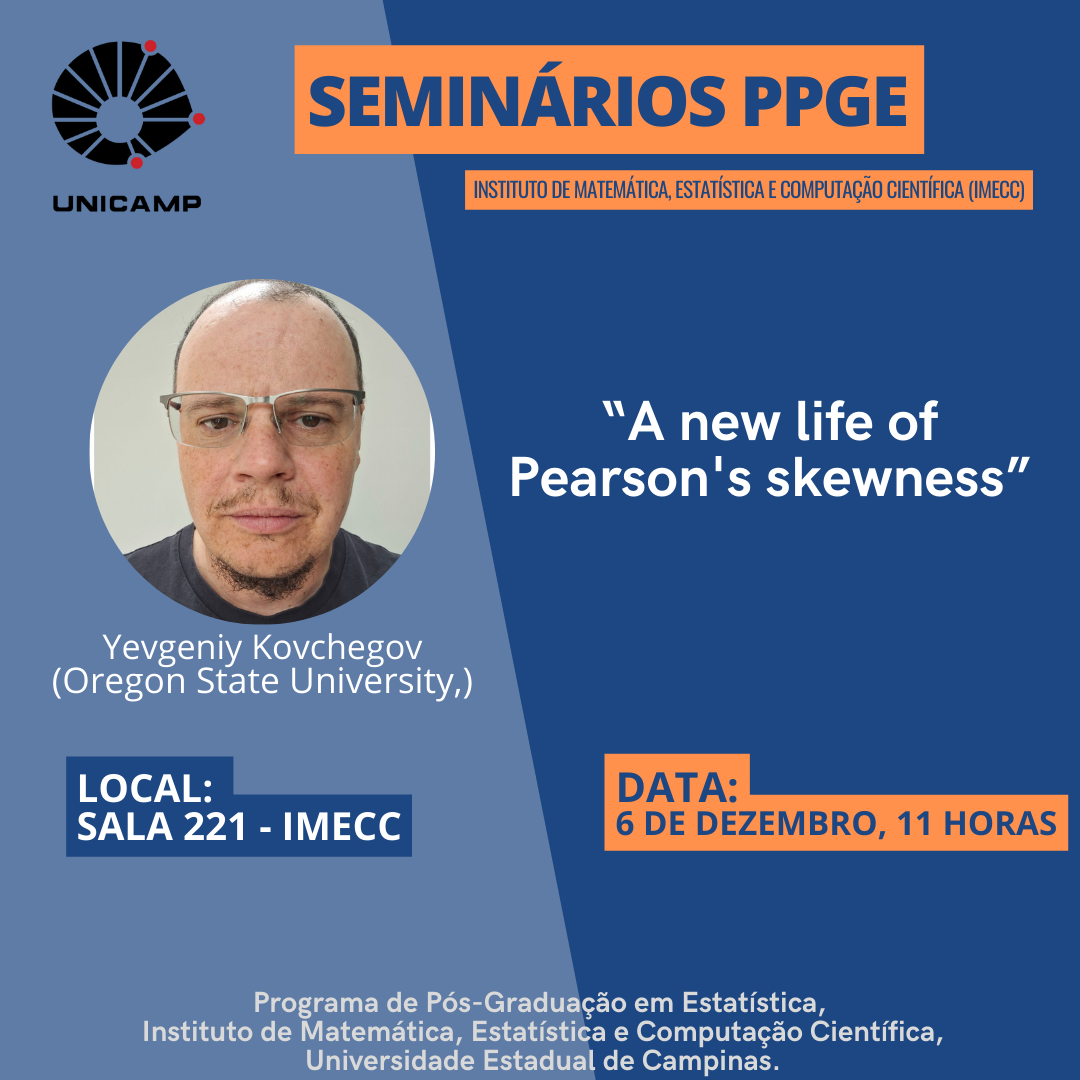Nome:
Yevgeniy Kovchegov
Instituição:
Oregon State University
Data do Evento:
sexta-feira, 06 de Dezembro de 2024 - 11:00
Local do evento
Sala 221
Descrição:

- ABSTRACT: In this work we attempt to rigorize the notion of Pearson's skewness. Informally, a probability distribution is positively skewed if its left half is "spreading short" and its right half is "spreading longer", and negatively skewed if vice versa. We use metric space centroids (i.e., Frechet means) to define generalized notions of positive and negative skewness that we call truly positive and truly negative. We apply the probabilistic methods of coupling and stochastic dominance for determining whether a continuous random variable is truly positively skewed. We present some basic examples of true positive skewness, thus demonstrating how the approach works in general.
- SHORT BIO: Professor Kovchegov earned his bachelor's degree from New York University (NYU) in 1997. He received his master's degree from Stanford University in 2000. And, in 2002, he was awarded his PhD from Stanford University. His PhD thesis advisor was Amir Dembo. From 2002 to 2005, Kovchegov was a postdoctoral scholar at the University of California, Los Angeles (UCLA), where he was mentored by Thomas M. Liggett. After that, Kovchegov moved to the Oregon State University, where he worked as an Assistant Professor from 2005 to 2011, Associate Professor from 2011 to 2017, and Full Professor from 2017 till present. In 2018, he coauthgor a book on aggregate path coupling method, published by Springer. In 2020 and 2022, he coauthored two surveys on random self-similar trees. He is currently an associate editor for Stochastics and Dynamics and for Rocky Mountain Journal of Mathematics.



